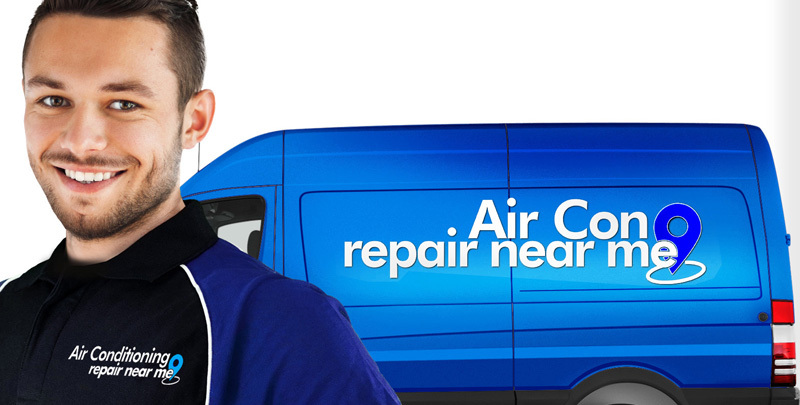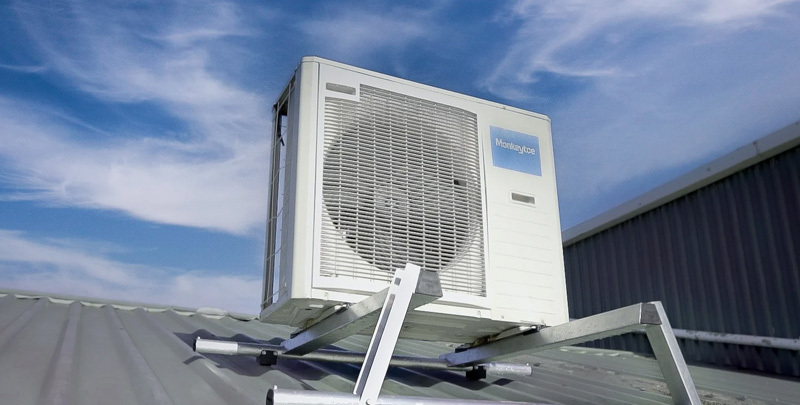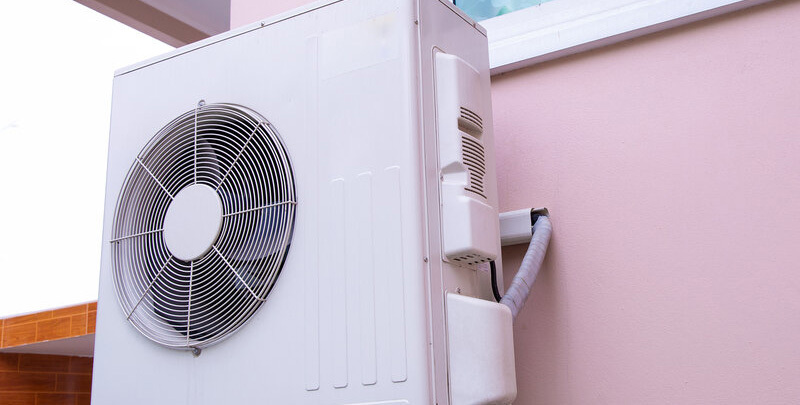Common Air Conditioner Problems
Published on : November 14th, 2023

There's nothing worse than a malfunctioning air conditioner on a hot Australian summer day. For most of us, our air conditioning units serve as a lifeline against scorching temperatures.
This blog post will delve deep into understanding common air conditioning unit problems and their causes, signs, and effects.
Understanding Air Conditioners & How They Work
Air conditioners operate on a simple yet effective principle – absorbing hot air from the surrounding space, cooling it down, and recycling it back into the room as chilled air. This continuous cycle of cold air keeps your rooms cool and comfortable, particularly during the relentless Australian summers.
The Power Trio: Evaporator Coil, Condenser Coil and Compressor
Air conditioners may seem complex on the surface, but their cooling process essentially hinges on three key components:
1. Evaporator Coil
An essential segment of an AC unit, the evaporator coil is where the heat exchange happens. Located inside the indoor unit, the evaporator coil houses the cold refrigerant. As the AC draws in warm room air, the refrigerant absorbs the heat, causing it to evaporate. The resulting cool air is then blown back into the room, reducing the overall temperature. In this process, humidity is also reduced as the evaporator coil condenses water vapour from the cooled air, lessening the mugginess in the room.
2. Compressor
Acting as the “heart” of an air conditioning system, the compressor circulates the refrigerant between the evaporator and the condenser coils. Once the refrigerant absorbs heat from air conditioning coils and turns into a low-pressure gas at the evaporator coil, it is moved towards the compressor, located in the outside unit. The compressor pressurises and heats up the refrigerant, preparing it for the next stage.
3. Condenser Coil
The condenser coil, residing with the compressor in the outdoor unit, plays a significant role in removing the heat absorbed from your room. The pressurised gas from the compressor enters the condenser coil. Here, the gas condenses back into a liquid state, releasing the trapped heat outdoors. The refrigerant, now cooled and liquified, is propelled back to the evaporator coil, initiating a new cooling cycle.
Together, these three components form a closed loop, enabling the air conditioner to continuously absorb and exhaust heat until the desired room temperature, set on the thermostat, is achieved.
The Role of Other Components
Other components of the air conditioner also contribute to the efficient working of this system. Thermostat sensors, circuit breakers, control panels, and fan controls work together to facilitate airflow, control, temperature, protect the system from electrical faults, and manage other functionalities of the air conditioner.
This broad understanding of air conditioners and how they function makes sure you’re better prepared to identify symptoms of common air conditioner problems and understand their causes.
Whether your air conditioner is not cooling, the air conditioner is freezing up, or the thermostat is acting up, recognising the problem is the first step to effective resolution.

Common Air Conditioner Problems, Causes, and Signs
Now that you have a basic understanding of how your AC works, it’s time to explore the different types of problems it may have during its entire lifespan, as well as its signs:
- Dirty air filters: Dirty filters block the airflow blowing cold air, thereby reducing a unit’s efficiency. The signs of this AC problem include reduced cooling efficiency and the AC unit failing to cool the room.
- Low refrigerant: The refrigerant is the substance that your air conditioner uses to remove heat from the air. If your air conditioner is low on refrigerant, it might be due to a leak or an issue with the refrigerant system. A low refrigerant level can result in reduced cooling capacity and harm your air conditioner if not repaired promptly.
- Refrigerant leaks: Refrigerant leaks reduce the system’s refrigerant levels. This can cause your air conditioner to underperform or produce hot air instead of blowing cool air. Signs include decreased cooling capabilities and ice formation on the refrigerant lines.
- Faulty thermostat: A malfunctioning thermostat sensor or wrong thermostat settings can sometimes confuse the control panel of your air conditioner, causing it to act erratically, such as the air conditioner turning on and off without completing a full cooling cycle.
- Drainage problems: Just like filters, drainage in your air conditioner could get clogged, which prevents humidity from being drained off properly. This could result in leakage or other damage that adversely impacts the air conditioner’s performance.
- Electrical complications: Electrical issues, such as a tripped circuit breaker or blown fuse, could cause the AC unit to stop working. Signs include the air conditioning system not starting or stopping abruptly.
- Frozen evaporator coil: The evaporator coil is filled with refrigerant and is responsible for absorbing heat from the air. If the coil gets too cold, a layer of ice can build up on the outside. When that happens, you’ll get warm air or no air from your air supplies.
These problems can vary greatly in terms of their severity and the cost to repair them. Therefore, regular maintenance of your air conditioner is essential to keep it running efficiently and to avoid costly repairs or replacements.
Effects of Common Air Conditioner Problems
Left unattended, these air conditioner problems can escalate into more issues down the line. Here are some of them, divided according to system efficiency, energy consumption, and indoor air quality:
System Efficiency
- Dirty filters and system efficiency: Dirty filters can significantly affect your cooling system’s efficiency. When filters are dirty, airflow decreases, leading to reduced cooling capacity. One common effect is that your air conditioner is running without cooling properly.
- Faulty fan motor and system efficiency: Likewise, deteriorating fan motors also affect system efficiency. The fan motor facilitates the movement of cooled air into your home and expels hot air outside. Once its functioning is impaired due to wear and tear over time, the cooling capacity and efficiency of your air conditioner can diminish rapidly.
- Worn-out compressors and system efficiency: A worn-out or dysfunctional compressor poses serious challenges to your air conditioner’s efficiency as well. This component is responsible for circulating refrigerant between the evaporator and condenser coils. An ineffective compressor means that this essential process is hampered, leading to compromised cooling.
Energy Consumption
- Irregular cycling and energy consumption: When an air conditioner turns on and off irregularly, or if it fails to complete a cooling cycle, it indicates a malfunctioning component like a thermostat, dirty air filter, or even low refrigerant levels. These problems can escalate your air conditioner’s energy consumption—a major cause of inflated energy bills.
Indoor Air Quality
- Dirty filters and indoor air quality: Clogged or dirty air filters don’t just hamper cooling—they can also adversely affect the quality of your indoor air. Dirt, dust, pollen, and other allergens can bypass a blocked filter, infiltrating the air inside your home and contaminating it.
- Excess moisture and indoor air quality: Overly saturated air can make your interiors feel muggy and uncomfortable and can damage your furniture, walls, and electronics. Not to mention, it can potentially exacerbate respiratory conditions and allergies.
- Poor air circulation and indoor air quality: Stagnant or poorly circulated air can make your space feel stuffy, intensifying allergen concentrations and leading to a build up of airborne pollutants and microorganisms.

The Importance of Regular AC Maintenance
Most common air conditioner problems can be resolved or prevented by regular maintenance. Following are some significant reasons why regular air conditioner maintenance should be a priority:
- Enhanced efficiency: For tasks such as cleaning or replacing air filters and checking the refrigerant levels, make sure that your AC unit won’t need to work harder than necessary, thereby saving energy and reducing your electricity bills.
- Increased lifespan: Regular check-ups and minor maintenance activities help prevent small issues from turning into major problems, extending the lifespan of your unit.
- Better air quality: Regular maintenance makes sure that your AC unit continues to effectively remove pollutants and allergens from the air, providing better air quality inside your home.
- Early problem detection: Regular maintenance includes professional inspections that can identify potential problems early on. This gives you a chance to fix issues before they become larger, avoiding costly repairs or replacements down the line.
- Lower repair costs: Regular maintenance might seem like an extra cost, but in reality, it often ends up saving you money. This is because maintenance can prevent many common air conditioner problems, helping you avoid costly breakdowns and ensuring that your system keeps running smoothly.
Regular maintenance is all about making sure you have reliable comfort in your home year-round, with fewer interruptions for repairs or replacements. So next time you think about skipping a check-up, remember that an ounce of prevention is worth a pound of cure.
Professional Help for Air Conditioner Problems
While regular maintenance can resolve some issues, common air conditioner problems like electrical connection issues and faulty thermostats often need professional attention. Heating, ventilation and air conditioning (HVAC) technicians can not only diagnose issues more effectively but can also perform wiring repairs safely.
Remember, it’s not recommended to try complex repairs like fixing a refrigerant leak or servicing a condenser fan motor on your own. Rely on professionals to ensure the longevity of your air conditioner.
Ready to Give Your Air Conditioning Systems Some TLC?
Understanding common air conditioning problems and their causes, effects, and signs can empower homeowners to identify issues early and act accordingly. Remember that efficient AC units not only cool down your home but also save energy and costs in the long run.
When in doubt, always consult a professional HVAC technician. They’re trained to handle all your air conditioning needs, from routine maintenance to handling complex AC problems.
Please note: This information is provided for advice purposes only. Regulations differ from state to state, so please consult your local authorities or an industry professional before proceeding with any work. See our Terms & Conditions here.